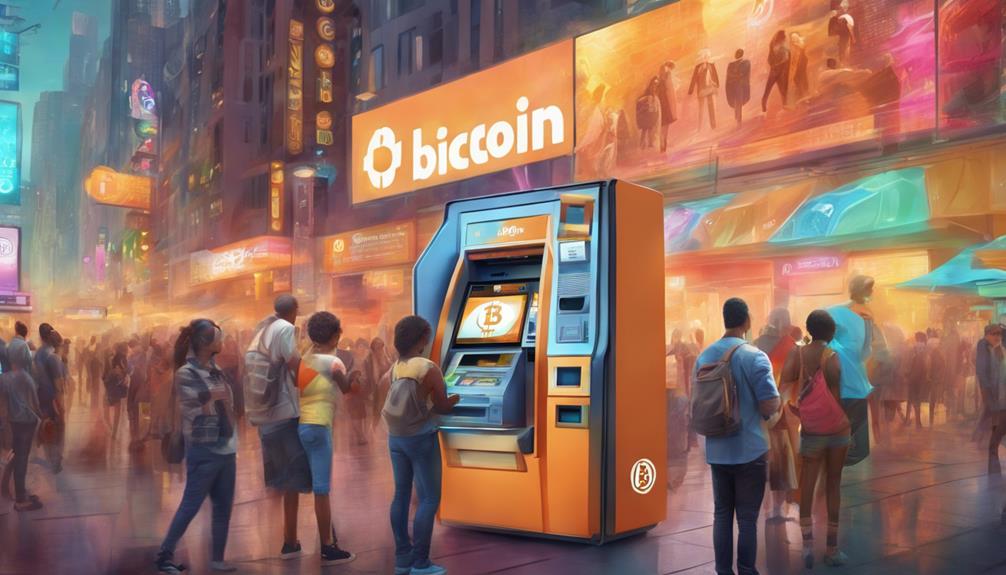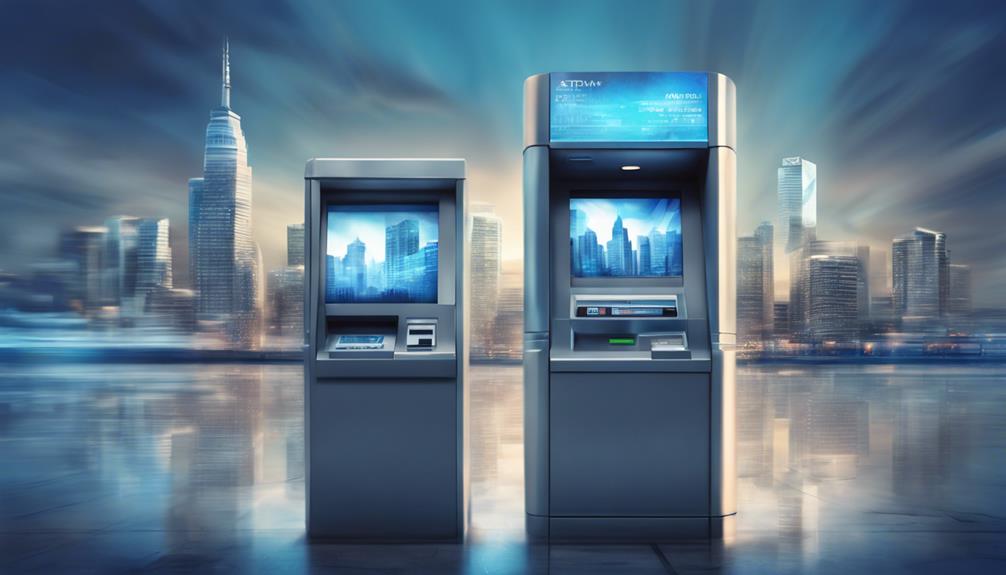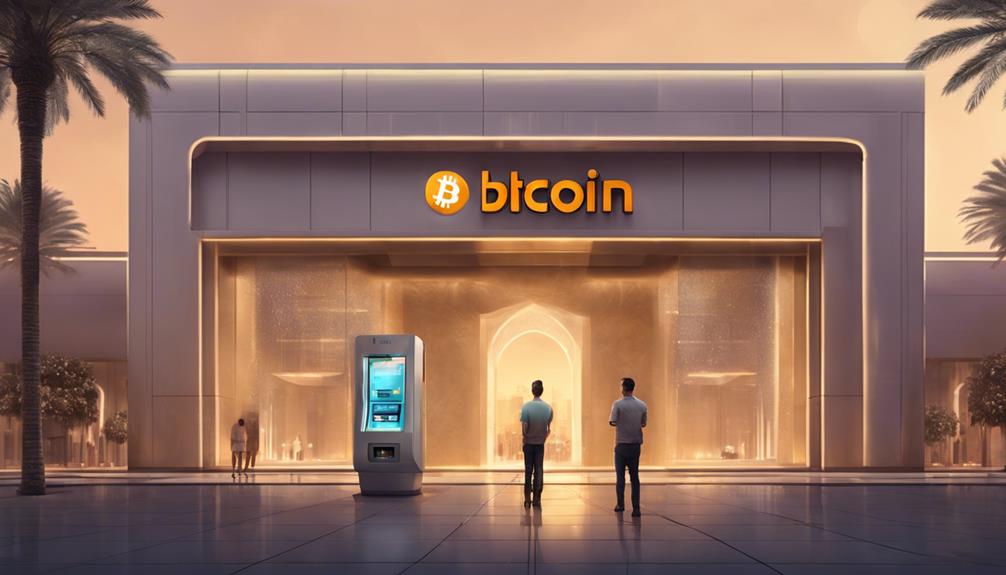How DeFi Technology Will Transform Cryptocurrency by 2025

As you look towards 2025, you'll find that DeFi technology is poised to reshape the cryptocurrency world profoundly. Imagine conducting your financial transactions seamlessly without traditional intermediaries, thanks to automated market makers and enhanced liquidity protocols. While yield farming could potentially offer you higher returns, the integration of Layer 2 solutions promises to boost transaction speeds and scale like never before. However, with these advancements come significant security and regulatory challenges that are critical to navigate. How will these changes impact your investments and the broader financial landscape? You might want to keep an eye on these developments.
Rise of Automated Market Makers

As the DeFi landscape evolves, Automated Market Makers (AMMs) are revolutionizing how users trade cryptocurrencies. You're no longer tied to traditional trading methods where buyers and sellers must find each other to execute a trade. Instead, AMMs use algorithms to set prices and execute trades based on predetermined rules in liquidity pools.
This shift means you can trade assets anytime without waiting for an opposite party. It's all done automatically, reducing the time and hassle typically associated with trading.
You might wonder about the safety and reliability of these platforms. Well, AMMs operate on blockchain technology, ensuring transparency and security for your transactions.
You'll find that trading with AMMs offers a more predictable and straightforward pricing mechanism. The prices are determined by a mathematical formula rather than the unpredictable fluctuations of order books. This can help you make more informed decisions, as you're dealing with a system that responds logically to changes in supply and demand.
Moreover, the entry barrier is significantly lowered. You don't need a substantial amount of capital to start trading or providing liquidity. This opens up opportunities for a wider range of participants, democratizing access to the financial markets and allowing more people to benefit from cryptocurrency trading.
Enhanced Liquidity Protocols
Building on the foundation set by Automated Market Makers, enhanced liquidity protocols further streamline cryptocurrency trading. These innovative systems don't just sit back; they actively adjust and optimize liquidity pools based on real-time market conditions. You'll see that with these protocols, your trades become smoother as they minimize the slippage typically associated with large orders.
Imagine you're trading in a highly volatile market. Standard protocols might struggle, but enhanced liquidity protocols are designed to adapt quickly, ensuring you can trade efficiently without waiting for the market to catch up. They employ sophisticated algorithms that predict market trends and automatically rebalance the assets in a liquidity pool. This not only ensures better price stability but also enhances the overall health of the financial ecosystem.
Moreover, these protocols incorporate risk assessment tools that safeguard your investments. They evaluate the volatility and potential risk of assets in the pool, adjusting their strategies to mitigate possible losses. You're not just trading with smarter tools; you're trading with safer ones.
As we move towards 2025, these enhanced protocols are set to become a standard, offering you a trading experience that's not only faster and safer but also far more intuitive than ever before.
Proliferation of Yield Farming

Yield farming has exploded in popularity, revolutionizing how investors generate returns from their crypto assets. As you dive into this burgeoning world, you'll find it's much more than just another investment fad; it's reshaping the DeFi landscape. Essentially, you're earning more cryptocurrency using the cryptocurrency you already own. By lending your assets to liquidity pools, you receive rewards in the form of transaction fees or other tokens.
This isn't just a passive way to earn income; it requires active engagement and strategy. You need to constantly monitor your investments, understand the risks, and adjust your strategies as market conditions change. The allure lies in the potentially high returns, but remember, high reward often comes with high risk.
Moreover, the proliferation of yield farming platforms means you've got more options than ever. Each platform offers different features, supported tokens, and reward systems. You'll need to sift through these to find the ones that best suit your risk tolerance and investment goals.
As you navigate through 2025, watch how yield farming continues to evolve. The tools and interfaces will become more user-friendly, and as the market matures, you might find yield farming becoming a staple in digital asset portfolios.
Integration of Layer 2 Solutions
The integration of Layer 2 solutions is drastically enhancing the scalability and efficiency of DeFi platforms. You've probably noticed how congestion on the main blockchain can slow transactions and increase costs. Layer 2 solutions come as a game-changer, operating on top of the base layer blockchain to process transactions more swiftly and affordably. This means you're not only saving on gas fees but also enjoying faster, smoother transactions.
For instance, technologies like rollups consolidate multiple transactions into a single one, significantly reducing the strain on the Ethereum network. Imagine conducting a slew of transactions that, instead of overloading the system, actually help streamline it. This not only makes DeFi more accessible but also more appealing to both seasoned investors and newcomers.
Furthermore, these solutions aren't just about speed and cost. They're enhancing user experience. With quicker transaction times, you can move your assets or trade faster than ever, making DeFi platforms more competitive with traditional financial systems.
You're looking at a future where DeFi can handle the volume and speed that today's digital economy demands, making it a more viable option for everyday financial activities. Keep an eye on this space; it's where a lot of exciting developments are happening.
Expansion in Synthetic Assets

Synthetic assets in DeFi are revolutionizing how you can engage with various markets without actually owning the underlying assets. This means you can invest in commodities, stocks, or even currencies through crypto derivatives that mimic the real-world values. It's like having a virtual piece of gold or a share of a company, but it's all managed on the blockchain. This not only simplifies transactions but also opens up global market access to anyone with an internet connection.
You're no longer bound by traditional financial barriers. Whether you're in New York or Nairobi, you can participate in financial markets that were once out of reach. This democratization of finance not only boosts market participation but also enhances liquidity. As more people get involved, markets become more robust and less susceptible to manipulation.
Moreover, the use of blockchain ensures that all transactions are transparent and secure. While the specifics of smart contract security are a topic for another discussion, it's clear that the underlying technology supports a reliable trading environment. You get real-time tracking of your investments, immediate settlement of trades, and reduced transaction costs.
Advances in Smart Contract Security
Advances in smart contract security have become increasingly significant as more investors like yourself rely on these technologies for trading synthetic assets. As you delve deeper into decentralized finance (DeFi), you'll find that the robustness of smart contracts directly impacts your investments' safety and profitability.
Developers have introduced several innovations to enhance security. For instance, you've likely heard about automated auditing processes. These tools scrutinize code before it goes live, catching vulnerabilities that could lead to financial losses. It's like having a digital watchdog that never sleeps, always ensuring that the contracts you interact with are up to par.
Moreover, there's been a surge in the development of formal verification methods. These aren't just regular checks; they mathematically prove that a contract's behavior aligns with its specifications. You're not just hoping for the best—you're getting a guarantee that the code behaves exactly as intended.
You should also be aware of the rise in decentralized security services. These platforms allow community participation in identifying and resolving security flaws, offering bounties for each bug detected. It's a community effort to safeguard assets, pooling together collective expertise for stronger defense.
Regulatory Developments and Impact

As regulatory landscapes evolve, your engagement in DeFi may face new challenges and opportunities. Governments around the world are starting to recognize the potential of decentralized finance and are stepping up to create frameworks that ensure both innovation and consumer protection. You'll need to stay informed as these regulations can directly impact your investments and operations in the DeFi space.
For instance, the introduction of Anti-Money Laundering (AML) and Know Your Customer (KYC) regulations in the DeFi sector is becoming more prevalent. These requirements could increase operational costs but also add a layer of legitimacy that may attract more cautious investors. You'll have to navigate these changes carefully, balancing compliance with the flexibility that DeFi offers.
Moreover, tax implications are also shifting. As cryptocurrencies and DeFi earnings are increasingly recognized as taxable assets, you'll need to keep abreast of how different jurisdictions are taxing these assets to avoid any surprises.
Conclusion
By 2025, you'll witness DeFi reshaping the cryptocurrency world. You'll trade more efficiently thanks to automated market makers and enhanced liquidity protocols. With yield farming and synthetic assets, your investment opportunities will expand and diversify. Layer 2 solutions will speed up your transactions, while advances in smart contract security will protect your assets. As regulations evolve, they'll balance innovation with protection, making your financial dealings both safer and more inclusive. Get ready for a transformed financial landscape!





